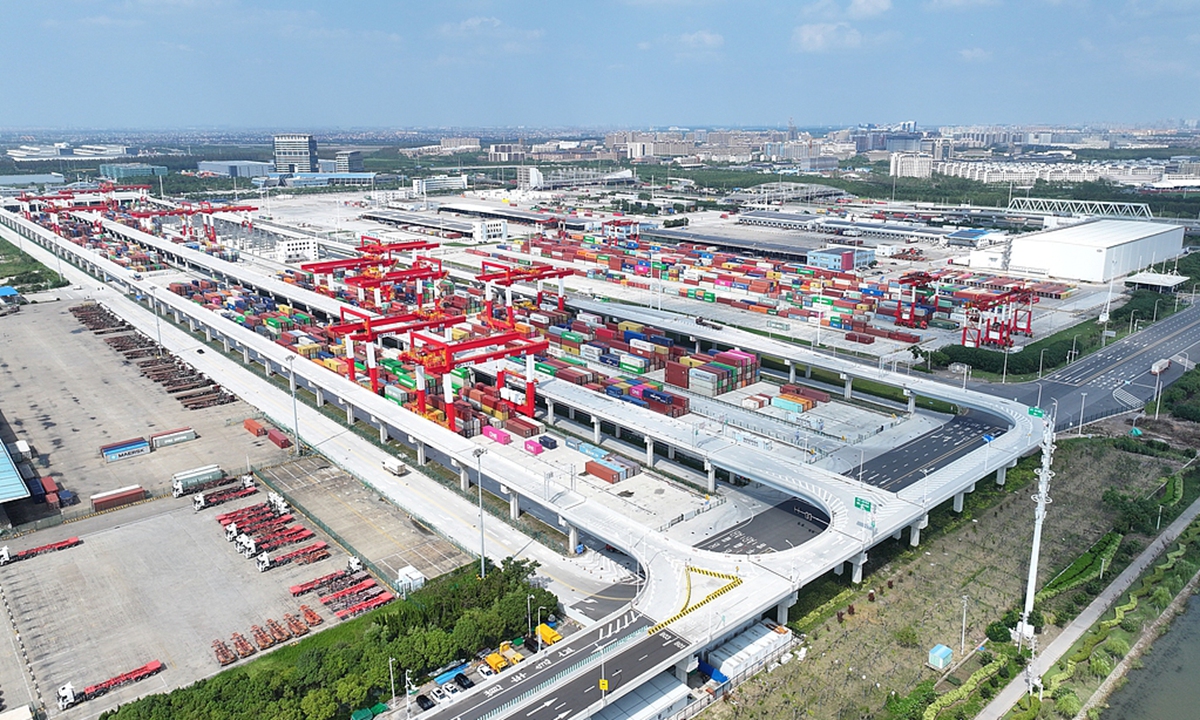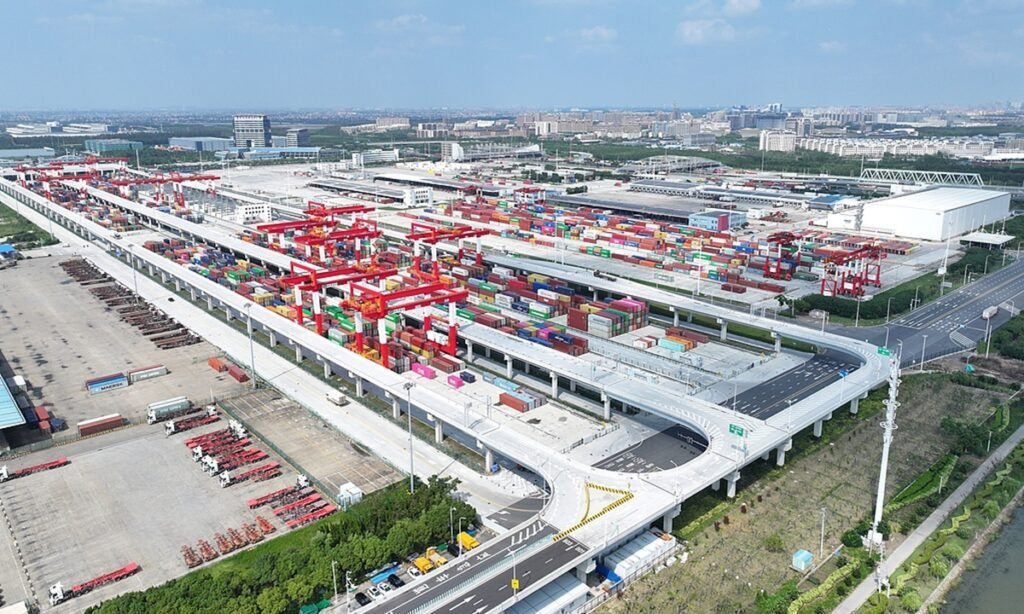
At the Yangshan special comprehensive bonded zone in the Lin-gang Special Area of the China (Shanghai) Pilot Free Trade Zone, containers arriving from Yangshan Port are being loaded and unloaded on October 10, 2024. Photo: VCG
After the State Council released a circular on Thursday saying that China will replicate 77 pilot measures from the China (Shanghai) Pilot Free Trade Zone (FTZ) in other FTZs and across the country, Tang Wenhong, assistant minister of commerce, said on Friday that the move demonstrates the country’s firm commitment to upholding the multilateral trading system and practicing free trade principles, while also injecting strong momentum into continuously optimizing the business environment and promoting high-quality economic development.
According to the Xinhua News Agency, the measures span seven key areas: services trade, goods trade, digital trade, intellectual property protection, government procurement reform, behind-the-border management systems reform, and risk prevention and control.
Of the overall package, 34 measures will be extended to other FTZs across the country, including those related to innovation in digital-yuan application scenarios, optimized cross-border fund management for multinational corporations, and data-export negative list mechanisms.
The remaining 43 measures will be implemented nationwide, covering cross-border electronic payment applications, commercial encryption certification recognition, data security management certification, government data transparency, and digital government procurement platforms.
Tang said that in recent years, the global openness index has been declining, with unilateralism and protectionism intensifying, posing severe challenges to multilateralism and free trade. FTZs serve as the vanguard of reform and opening-up and are “trailblazers” of innovative development, he noted. Independently conducting experiments in FTZs to align with high-standard international economic and trade rules and replicating these results on a broader scale are crucial measures to steadfastly manage China’s own affairs well and expand high-level opening-up.
“This reflects China’s resolute commitment to upholding the multilateral trading system and practicing free trade principles, while also injecting strong momentum into continuously optimizing the business environment and promoting high-quality economic development,” he said.
Tang noted that the measures are an important vehicle for expanding high-level opening-up, as they focus on promoting trade and investment liberalization, further expanding market access, and enabling the world to share the opportunities in China’s opening-up process.
For instance, innovation in digital-yuan application scenarios and optimized cross-border fund management for multinational corporations are closely related to enterprises’ daily operations and will further optimize cross-border fund management while improving the level of facilitation for cross-border trade and investment, according to the official.
In addition, these measures are a powerful lever for promoting deep-level reforms, with those covering intellectual property protection, government procurement and state-owned enterprise reform accounting for nearly half of the total. For example, in the field of government procurement, a package of 15 measures including further increasing transparency of information for limited competition projects and encouraging the publication of procurement announcements in both Chinese and English will further improve the transparency and fairness of China’s government procurement procedures while steadily aligning with international standards, Tang noted.
The measures are also a practical action to promote high-quality development, integrating high-standard international rules with the demands of China’s high-quality economic development, addressing difficulties and issues encountered in industrial development through institutional innovation, and enhancing the sense of gain for enterprises and the public, Tang said.
The initiative builds on a November 2023 plan that positioned the Shanghai pilot FTZ as a pioneer in aligning with high-standard international economic and trade rules, establishing it as a national demonstration zone for institutional opening-up. After more than a year of pilot testing, Shanghai has developed leading and landmark institutional innovations and valuable best practices, the circular said.
Authorities are instructed to implement these measures based on local conditions, prioritizing those most urgently needed by businesses and the public, with the aim of extending the benefits of institutional innovation to broader areas, Xinhua reported.
Global Times

